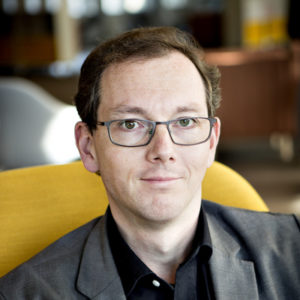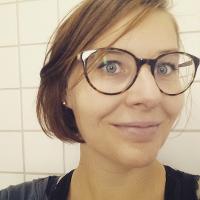Derek Hutcheson, KS Vice Dean for Doctoral Education
We are very pleased this month to welcome Ewa Lantz, the Faculty’s new Research Liaison Officer (Forskningshandläggare). Ewa joins us from Umeå University, where she worked at the Research Support and Collaboration Office, and from which she obtained a PhD in economic history in 2018. We look forward to benefiting from her extensive experience from three perspectives: as research administrator, former doctoral student, and qualified academic. You can read more about her in an interview below.

The greatest honour as Vice Dean for Doctoral Education is to be present at the public defence of a doctoral dissertation, the examination for the university’s highest-ranking degree. In the 17 months since I took up the role, ten PhD theses have been publicly defended in the Faculty (including three in collaboration with Roskilde University in Denmark). Each of these occasions has been scientifically probing and academically stimulating. Thanks to our colleagues in digital learning who have ensured their online streaming, as well as the excellent organisational support of our research education administrators, these occasions have retained an element of ceremony even under the difficult circumstances of the Corona restrictions. We wish all our recent doctoral graduates well in their future careers.
We now have five doctoral subjects in the Faculty of Culture and Society, with around 35 full-time doctoral students. Our two newest doctoral students – Rachel Doherty (Global Politics) and Valon Junuzi (IMER) will commence on 1 February. We welcome them to the university and hope that they will have a happy and productive time with us.
We would not be able to aspire to such high academic standards without the collective efforts of our doctoral students, supervisors and doctoral education co-ordinators. Following the restructuring of 2019-20, significant responsibility for doctoral education and doctoral students’ career planning now lies with the departments’ Advisory Committees of Supervisors. The faculty’s Board of Research and Doctoral Education (FFN in Swedish) has recently established an Advisory Committee for Doctoral Education (KFKS). This aims to connect the departments and the faculty in the strategic planning of doctoral education matters. I am grateful to my colleagues Maja Povrzanovic Frykman, Per-Markku Ristilammi and Pille Pruulmann Vengerfeldt – respectively the doctoral education co-ordinators in GPS, US and K3 – for their always-insightful input, as we work together in this new structure.
All these structures exist for one key purpose: to support high-quality doctoral research, and train doctoral students (who are an integral part of the university’s academic community) for future careers. Last semester we focused on mapping out doctoral taught courses for the next 2-3 years. Now we turn our attention to further priority areas: improving the administrative support structure; streamlining guidelines on doctoral studies; and developing proposals for research schools, to place doctoral education on a firmer long-term financial footing. Many of you have highlighted in dialogues that you would like more practical support in your roles as supervisors and doctoral students. Building on what we had started just before the pandemic hit, this year we plan to develop mentoring for supervisors and commence a new cycle of the Hands-On Teaching programme for doctoral students.
Since this is published in the week of 25 January, a celebratory date (Burns Night) in my homeland of Scotland, I end with the words of its national poet, Robert Burns. As we commence another year of doctoral education and hope that we will soon be seeing each again other in person and able to get back to our full range of research activities, ‘anticipation forward points the view’.
Interview (in Swedish) with Ewa Lantz, Research Liaison Officer (Forskningshandläggare)

Berätta lite kort om dig själv – vem är du och vad har du gjort tidigare?
Just nu bor jag i Umeå där jag fram tills årsskiftet arbetade på enheten för forskningsstöd och samverkan på Umeå Universitet. På samma universitet disputerade jag 2018 inom ämnet ekonomisk historia. Mitt forskningsintresse grundar sig i människans relation till landskapet. Avhandlingen behandlade konflikter om naturresurser i sågverksindustrins produktionskedja längst med Ångermanälven under perioden 1863-1906. Innan jag flyttade till Umeå arbetade jag på rektors kansli på högskolan Kristianstad som samordnare av kvalitetsfrågor. Där har jag gjort merparten av min grundutbildning i historia och geografi. Jag är född i Warszawa, uppvuxen i Olofström. Hela min familj ser fram emot att jag, min man Gunnar, vårt barn Siv och min tax Rosa ska flytta till Malmö under april/maj.
Vad ser du mest fram emot i ditt nya jobb?
Jag ser fram emot att lära känna Malmö universitet och att kunna arbeta långsiktigt – att hitta behov, utveckla, tydliggöra och skapa bryggor mellan verksamheter.
Vilka områden tycker du är viktigast att satsa på för att uppnå en hög kvalitet i forskarutbildningen?
Tydlighet, struktur och gemenskap. Det är viktigt att alla parter är medvetna om vad som sker, när och varför. Det skapar trygghet och ger en bra arbetsmiljö. Det är även viktigt att det finns gemensamma uttalade strukturer där delmoment och ansvarsområden definieras. Detta ger också trygghet och god arbetsmiljö. Slutligen – gemenskap. Det är viktigt att känna en gemenskap med samhället, att vi som forskare inte är en isolerad ö där allt annat finns på distans. Det är även viktigt att det finns en gemenskap med universitetet och alla stödstrukturer, att vi är alla en del av samma organisation. Till sist, den kollegiala gemenskapen med andra doktorander och medarbetare. Allt blir inte bara roligare, utan även bättre tillsammans.
